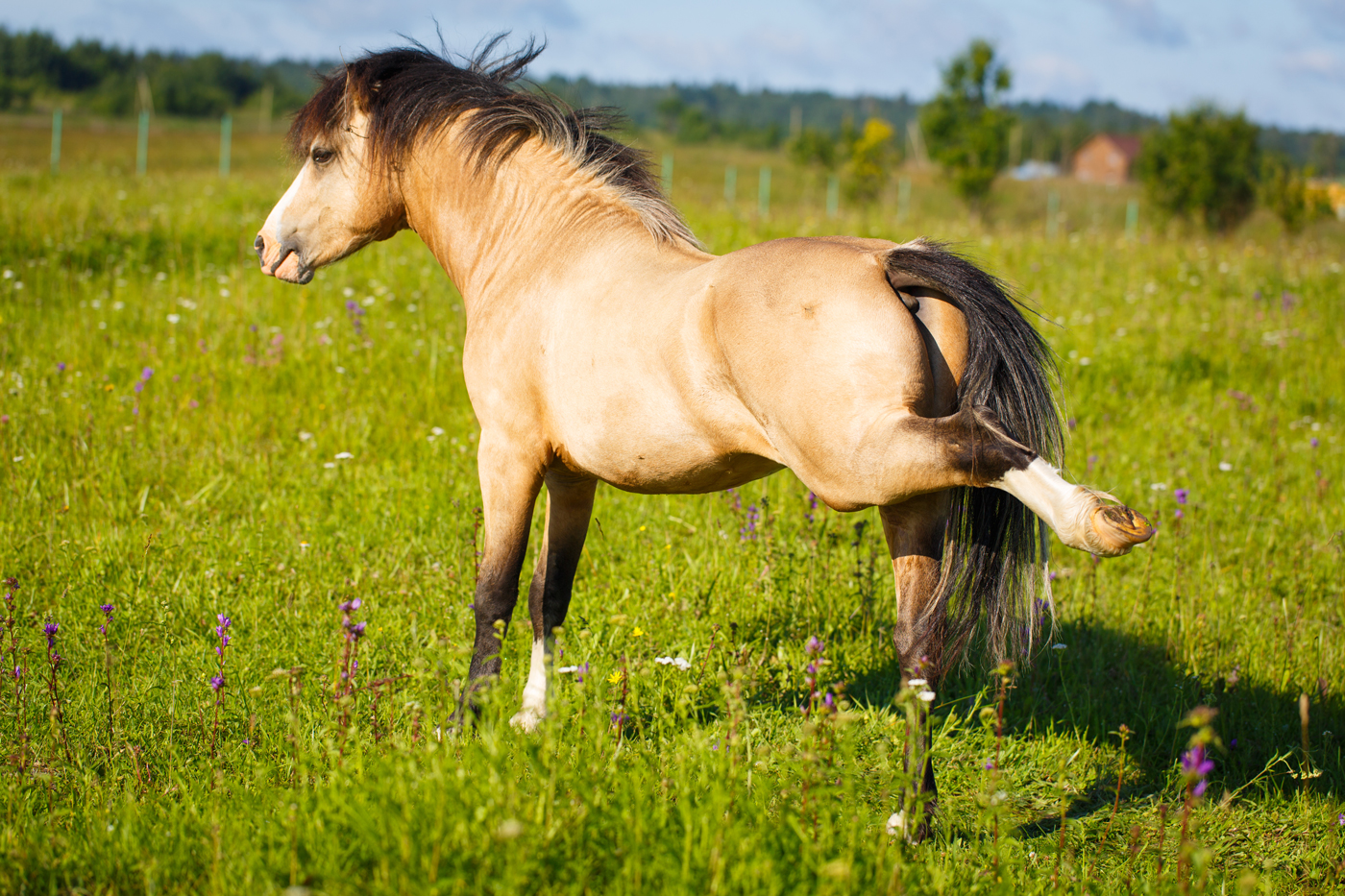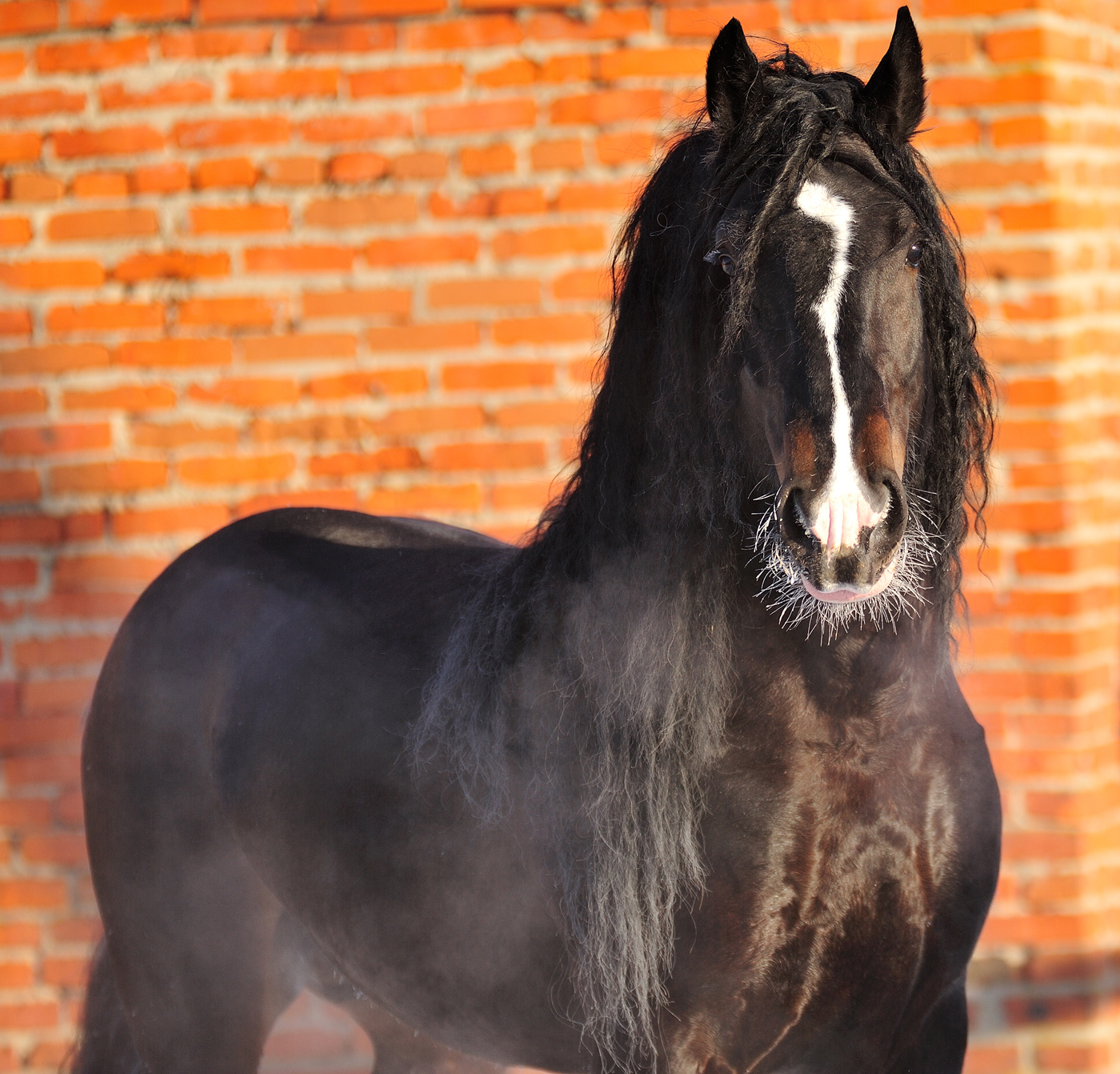Promotional feature with Global Herbs
It’s natural for horses to shift their metabolic state with the changing seasons; this helps them adapt to the different conditions. Their metabolism changes with the time of year, making it easier for them to lay down fat in the autumn, going into winter. (We’re sure we can say the same for us humans ‘layering’ in winter too!)
When horses and ponies put on weight for the winter (or just seem to be good doers any time of year), the extra fat they gain can naturally release hormone-like chemicals that change how the metabolic system behaves.

The metabolic change or additional fat can cause equine metabolic syndrome (EMS), which means increased fat deposits, insulin resistance and a predisposition to laminitis.
In nature horses adapt as they cope with the harsh winter weather, combined with a lack of food resource. Nowadays, varied stable management routines mean these environmental conditions are removed or reduced, sometimes without a thought of the horse’s metabolic state or natural coping mechanisms.

Food for thought..?
How many of us horse owners regularly body score or weigh our horse? Are our feeding regimes being adjusted to take into account new routines, levels of exercise and metabolic state?
What can be a contributor to EMS?
- Insulin resistance – have this tested by your vet
- Toxins in the horse’s environment – pesticides in nearby agricultural fields, airbourne toxins
- Being overweight – keep a regular check on weight and body condition
- Rich diet – keep a look out for additional sugars that may affect insulin
- Laminitis or Cushing’s disease – there is a higher risk in horses with EMS
Which horses and ponies are at highest risk of EMS?
All horses and ponies may experience EMS, but some breeds are a little more prone including Welsh, Dartmoor, Shetland Ponies, Morgan, Arabian and Warmbloods, but you should keep an eye on any breed.
Signs that may indicate EMS:
- Lays down a lot of fat, especially on the crest and belly
- Lethargic or not performing at usual level
- Sensitive laminae
- Irregular blood sugars or energy levels
- Appears hormonally unbalanced

EMS isn’t only seen in fatter or older horses; it can often go unnoticed so it is important to have you horse assessed by a blood test and by observation by your vet.
There are many ways owners can help support their equines during these metabolic changes or after a veterinary diagnosis of EMS, including using nutritional supplements and implementing a revised feeding regime. Helping other owners become aware of the signs of EMS will ensure more horses can live healthy, normal lives in the future.

Global Herbs is passionate about providing natural targeted solutions and metabolic sensitivities are an area we are constantly exploring. Global Herbs can help support horses with our metabolic product range:
- A stand-alone all natural approach
- Very fast acting solutions
- Supports sensitive laminae
- Maintaining normal blood glucose levels
- Supporting normal insulin and hormone levels
- Promoting normal body fat distribution across the body including crest- we have free weigh tapes available, get in touch via social media!
- Maintaining a stable metabolism and general fitness
- Safe for everyday, regular feeding
Learn more about supporting horses with EMS here.




